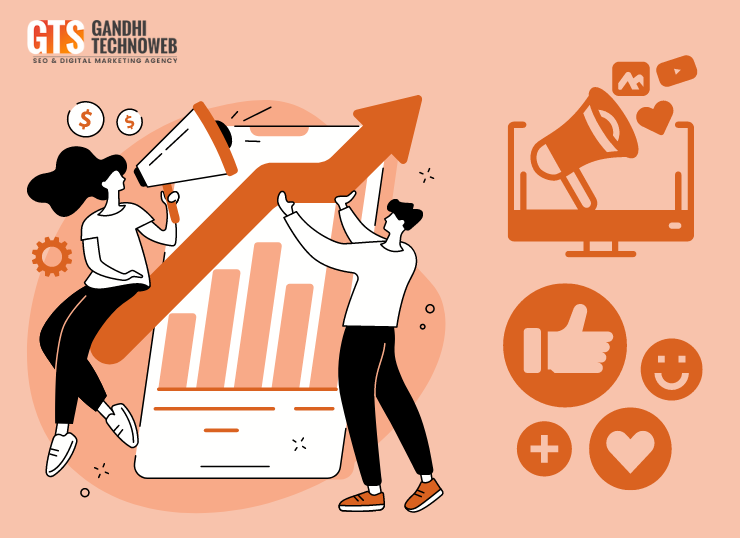Measuring Social Media ROI: Advanced Analytics for Effective Campaign
- What is Social Media ROI?
- The Challenge of Measuring Social Media ROI
- Setting Clear Objectives
- Advanced Analytics Tools
- Defining Key Metrics
- Integrating Data from Multiple Platforms
- A/B Testing for Optimization
- Case Studies: Real-World Application of Advanced Analytics
- The Future of Social Media ROI Measurement
- Conclusion
In the dynamic landscape of digital marketing, social media has emerged as a powerful tool for businesses to connect with their audience, build brand awareness, and drive conversions. However, as the investment in social media marketing continues to grow, businesses are increasingly looking for ways to measure the return on investment (ROI) of their social media campaigns. Traditional metrics like likes, shares, and followers provide some insight, but to truly understand the impact of social media efforts, advanced analytics are essential.
What is Social Media ROI?
ROI stands for return on investment. For our purposes, social media ROI means the business value returned from social media marketing and advertising. In other words, social media ROI measures the results of social media marketing compared to its costs.
It’s a way to assess whether your social media strategy generates a positive outcome for your financial or strategic goals.
Here’s A Simple Formula To Calculate Social Media ROI:
Social media ROI = ((Value generated from social media – Costs of social media investment) / Costs) * 100
Here’s What The Components Of The Formula Mean:
Value generated from social media. The definition of value varies from business to business. Value can include increased sales, leads, conversions, or cost savings due to effective social media engagement. We expand on this more below.
Costs of social media investment. This means all costs associated with executing your social media strategy. It can include advertising budgets, content creation costs, employee salaries, software & tool subscriptions, and other resources related to social media activities. The result of the formula is usually expressed as a percentage.

Struggling with Online Criticism? Discover How Our ORM Agency Can Improve Your Image?
Don’t let negative reviews or damaging content tarnish your reputation. Our ORM experts specialize in repairing and enhancing online perceptions.
Any ROI percentage greater than 0 means that your social media efforts have generated more value than the resources you invested. In contrast, a negative ROI means you invested more than you made back (aka you lost money). Measuring social media ROI empowers marketers to prove their efforts’ value. By calculating ROI, you can determine what’s working and what’s not and attribute real business results to social media.

The Challenge of Measuring Social Media ROI:
Measuring the ROI of social media campaigns can be challenging due to the complex nature of user interactions and the multitude of platforms available. Simply counting likes and shares doesn’t provide a comprehensive picture of the value generated. To address this challenge, businesses are turning to advanced analytics tools and methodologies to gain deeper insights into the performance of their social media initiatives.
Setting Clear Objectives:
Before delving into advanced analytics, it’s crucial to establish clear objectives for your social media campaigns. Whether it’s increasing brand awareness, driving website traffic, or boosting sales, having well-defined goals will guide your analytics strategy. Each objective requires different key performance indicators (KPIs) and metrics for accurate measurement.
Advanced Analytics Tools:
1. Social Listening Tools:
Social listening tools allow businesses to monitor online conversations and track brand mentions, sentiments, and trends. By analyzing these data points, companies can understand how their audience perceives them and make informed decisions to improve their social media strategies.
2. Attribution Models:
Attribution modeling helps businesses attribute conversions and sales to specific touchpoints in the customer journey. Advanced attribution models go beyond the last-click attribution and consider the entire customer journey, providing a more accurate representation of how social media contributes to conversions.
3. Customer Lifetime Value (CLV):
Calculating the CLV associated with social media-driven customers provides insights into the long-term value generated by these campaigns. This metric is particularly valuable for businesses focused on building lasting relationships with their customers.
4.Social Media Analytics Platforms:
Utilizing comprehensive social media analytics platforms, such as Sprout Social or Hootsuite Analytics, enables businesses to measure engagement, track conversions, and gather audience demographics. These platforms offer in-depth insights into the performance of individual posts, campaigns, and overall social media presence.
Defining Key Metrics:
To measure social media ROI effectively, businesses need to identify and track relevant metrics aligned with their objectives. Here are some key metrics to consider:
1. Conversion Rate:
Track the percentage of social media visitors who take the desired action, whether it’s making a purchase, filling out a form, or signing up for a newsletter.
2. Click-Through Rate (CTR):
Measure the percentage of users who click on a link in a social media post compared to the total number of impressions. A high CTR indicates that your content resonates with your audience.
3.Engagement Rate:
Calculate the total engagement (likes, comments, shares) on a post relative to the number of followers. A high engagement rate signifies a strong connection with your audience.
4.Reach and Impressions:
Assess the number of people who see your content (impressions) and the unique individuals reached. This provides insights into the overall visibility and potential impact of your social media efforts.
Integrating Data from Multiple Platforms
To obtain a holistic view of social media ROI, businesses must integrate data from various platforms. Social media campaigns often span across multiple channels, and consolidating data allows for a more comprehensive analysis. Utilizing tools like Google Analytics or custom-built dashboards can help aggregate data from different sources, enabling a unified and coherent assessment.
A/B Testing for Optimization
A/B testing, or split testing, involves comparing two versions of a social media element to determine which performs better. Whether testing different ad creatives, posting times, or call-to-action buttons, A/B testing allows businesses to optimize their strategies based on real-time performance data. This iterative approach ensures that social media efforts are continuously refined for maximum effectiveness.
Case Studies: Real-World Application of Advanced Analytics
Case Study 1: E-commerce Success with Attribution Modeling
An e-commerce company implemented advanced attribution modeling to analyze the customer journey from social media exposure to purchase. By attributing value to various touchpoints along the funnel, the company discovered that while social media played a role in initial brand awareness, email marketing was the primary driver of conversions. This insight led to a reallocation of budget, resulting in a significant increase in overall ROI.
Case Study 2: Brand Engagement and Social Listening
A consumer goods brand leveraged social listening tools to monitor online conversations related to its products. The brand adjusted its social media content strategy by identifying common sentiments and customer preferences to align with customer expectations. This data-driven approach resulted in a 20% increase in engagement and a notable improvement in overall brand perception.

Not Sure How to Manage Your Online Presence? How Can Our ORM Agency Help You Shine?
Your brand’s reputation is invaluable. With our ORM solutions, you can safeguard it against threats and capitalize on opportunities.
The Future of Social Media ROI Measurement
As technology continues to evolve, so too will the tools and methodologies for measuring social media ROI. Artificial intelligence and machine learning algorithms are already being employed to analyze vast amounts of data, providing even more accurate predictions and insights. Predictive analytics will play a crucial role in forecasting the potential impact of social media campaigns, allowing businesses to proactively adjust their strategies.
Conclusion:
Measuring social media ROI requires a sophisticated approach that goes beyond surface-level metrics. Advanced analytics tools, combined with a clear understanding of business objectives and relevant KPIs, empower companies to evaluate the true impact of their social media campaigns. By investing in these tools and methodologies, businesses can refine their strategies, optimize performance, and ultimately drive a higher return on investment from their social media initiatives. As the digital landscape continues to evolve, staying ahead of the curve with advanced analytics will be the key to unlocking the full potential of social media marketing.
Gandhi Technoweb Solutions is a leading Social Media Marketing Agency in India offering all kinds of Social Media Services at affordable prices. We are also a digital marketing agency offering inbound marketing solutions like SEO, PPC & Affiliate Marketing to take your business to the next level. For further information, please contact us today.
Want To Grow Your Business Online Visit the #1 Social Media Marketing Company in Ahmedabad. Request a FREE Quote Now.









